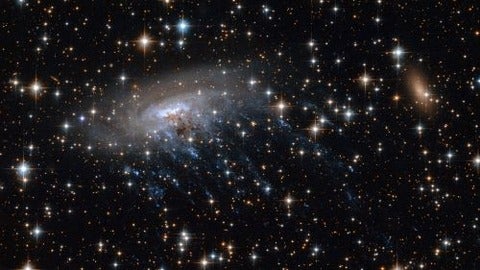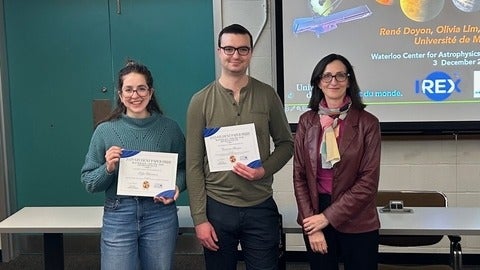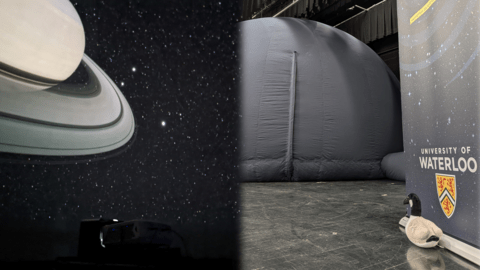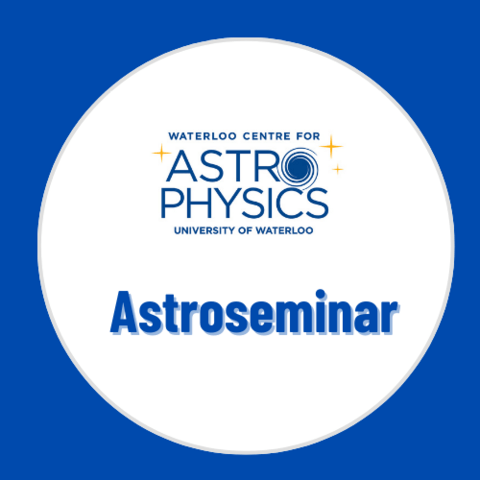...where the Universe is our laboratory.
The Waterloo Centre for Astrophysics (WCA) looks to the cosmos to solve the greatest mysteries of the universe. Here, world-class researchers and students come together in an atmosphere of curiosity, creativity and collaboration; exploring our cosmic origin to truly understand the physical processes at work in the Universe. From black holes to cosmology, we aim to understand what lies beyond the Earth. The possibilities for new discovery are limitless.
News
Highest redshift jellyfish galaxy
WCA researchers Ian Roberts and Michael Balogh lead the team that have discovered the highest redshift jellyfish galaxy, named for the long, tentacle-like streams that trail behind them.
WCA Student Paper Prize 2025
Congratulations to graduate students Sofia Chiarenza and Cameron Morgan, who were awarded the 2025 WCA Student Paper prize. They were presented with their certificates by Dr Sara Seager, who sits on the WCA Governing Board.
The WCA student paper prize is awarded to the papers judged to be the best graduate student-led papers submitted in the past year (July 1 2024 - June 20 2025). They are evaluated on their importance to their field, originality of conception, difficulty of execution, clarity of the manuscript, and reproducibility.
Here, Cameron and Sofia describe their prize winning work.
Astro-Bubble on Tour
In October, three WCA members took the "Astro-Bubble" planetarium on tour, sharing space and astronomy with students and communities across Northern Ontario.
Events
Astroseminar - Charlie Mpetha
"Cluster Lensing in the Stage-IV Era"
Charlie Mpetha did his undergraduate at Lancaster University, then moved to a PhD in gravitational wave cosmology at the University of Edinburgh. Mid-way through his PhD, in 2023, he won a Leverhulme Study-Abroad scholarship to work at the WCA for a year with James Taylor on topics in cluster cosmology. Now, Charlie is in his first year as a NASA Postdoctoral Fellow at Goddard, working on cluster science for the Nancy Grace Roman space telescope.
Astroseminar - Elisa Dong
Elisa Dong is a final year PhD candidate at York University researching planetary atmospheres trying to understand how and why things move from point A to point B, or don’t. Her favourite research question is, "what if?". She completed her BSc in Geophysics at the University of Waterloo, and an MSc at Western University.











